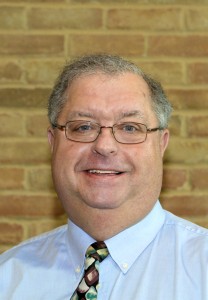
Neuroscientists study the actions of individual neurons and groups of neurons called networks or circuits which drive every activity of humans and animals. Some of the functions they study are: learning and memory, language, attention, emotions, thinking and reasoning, consciousness, imagination, empathy and attachment, identity formation from a neurobiological level, and movement to name a few.
Researchers and clinicians are also interested in what happens when these networks do not work properly thereby creating disorders such as Anxiety and Depression, Schizophrenia, Drug Abuse, Multiple Sclerosis, Dementia, Autism, Parkinson’s disease and Learning Disorders. Our knowledge of these and other disorders and how the brain works is still in the infancy stage. The discovery of the neurobiology of “brain-behavior disorders” will lead to more effective treatment options.
Research Neuroscientists come from a background in basic science like medicine, chemistry, and biology, as well as schools of psychology or hybrid programs in medicine and psychology. Practicing clinician disciplines include neuropsychologist, neurologist and neruopsychiatrist who try to operationalize this data in clinical settings.
Interesting Facts About Neuroscience
- If we can delay the onset of Alzheimer’s disease, the most frequent type of dementia, our nation could save 50 billion dollars a year in healthcare dollars.
- Neurological illnesses affect about 1 billion individuals worldwide.
- Mental Health disorders affect 44 million adults annually costing about 148 billion dollars yearly.
- It was once said you use only about 10% of your brain. However, recent MRI research indicates humans use multiple regions of the brain to accomplish even simple tasks. The brain is a well-integrated, complex organ. There are no “silent regions”.
- Since many mental health disorders have their onset in late adolescence or young adulthood, recent research says these disorders are really developmental disorders caused by a disruption of the circuitry of development.
- In the next decade, neuroscience will describe key interactions between genes and environmental effects that produce alteration in neuro-proteins that lead to dysfunctional brain circuitries and behavioral symptoms.
- In the near future, researchers will develop “Smart Medications” which can effectively target dysfunctional circuitries without producing side effects.
- With the advent of the Magnetic Resonance Imaging (MRI), Positron Emission Tomography (PET), Computed Tomography (CT) and other techniques, researchers are actually seeing circuitries and how they function.
- A better understanding of the role of psychotherapy in altering brain chemistry and rewiring of circuitry (called brain plasticity) for better adaptation is on the horizon.
- The real target of psychotherapeutic interventions (talk therapy) is at the neurotransmitter level. Psychotherapy alters brain chemistry and promotes development of new pathways through learning and adaptation.
- Although we would like to think we are actively in control and plan all of our movements and responses, research shows that about 80% of the time we are responding to routine situations with lower levels of our brain in an automatic fashion.
- Our logical, problem solving portion of our brain (the frontal lobes) operate like a supervisory functioning coming into play when the habit system part of our brain cannot quickly determine a response and a new response is needed. Otherwise, the habit system operates quickly and efficiently driving most of our behavior day to day.
Interested in more information? Check out:
The Journal of Behavioral Neuroscience by APA
The Journal of Neuroscience: The world’s largest organization of scientists and physicians dedicated to the study of the brain, spinal cord and peripheral nervous system
Society for Neuroscience (SFN)

By Dr. P. Douglas Callan, PhD, LP, Core Faculty at MSP
Along with being a Core Faculty member at MSP, Dr. Callan has a clinical/health psychology practice in Fenton, MI specializing in Cognitive Behavioral Therapy (CBT) for adults and older adolescents with complicating psychosocial aspects of medical disorders, depression, anxiety, life changing events, and PTSD. He also is trained as a neuropsychologist performing assessment with an emphasis in pediatric neuropsychology specializing in learning disorders and ADHD assessment.